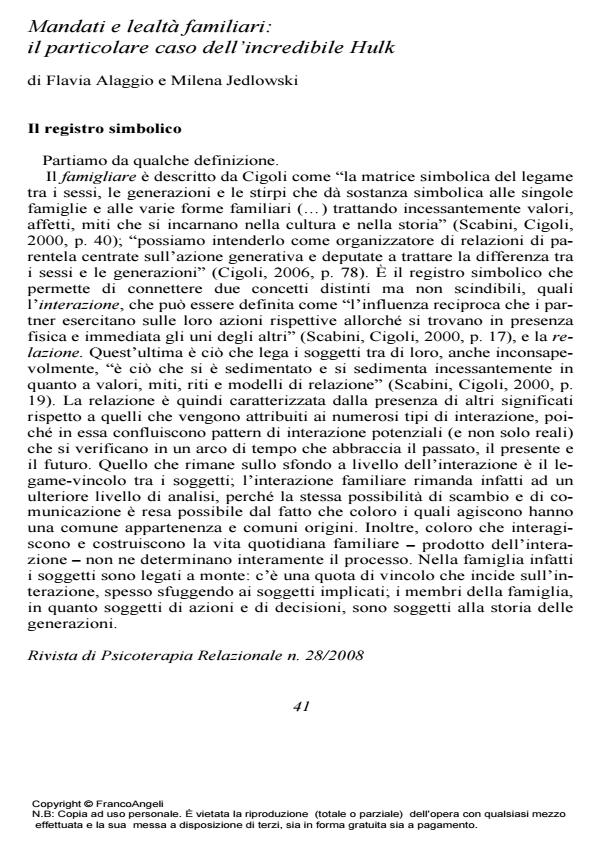Mandati e lealtà familiari: il particolare caso dell’incredibile Hulk
Journal title RIVISTA DI PSICOTERAPIA RELAZIONALE
Author/s Flavia Alaggio, Milena Jedlowski
Publishing Year 2009 Issue 2008/28
Language Italian Pages 14 P. 41-54 File size 514 KB
DOI 10.3280/PR2008-028004
DOI is like a bar code for intellectual property: to have more infomation
click here
Below, you can see the article first page
If you want to buy this article in PDF format, you can do it, following the instructions to buy download credits

FrancoAngeli is member of Publishers International Linking Association, Inc (PILA), a not-for-profit association which run the CrossRef service enabling links to and from online scholarly content.
Mandati e lealtà familiari: il particolare caso dell’incredibile Hulk - In this article some of the aspects about the "family" construct proposed by Vittorio Cigoli are analysed thoroughly. Particularly the paradigms of this construct such as the affective pole and the ethical pole are drawn. As for the first aspect we refer to the works by Erik Erikson about hope and trust, shifting from an interpretation focused on the "Self" to another one focused on the exchange among generations. Relating to the ethical pole, we consider the hypotheses by Ivan Boszormenyi- Nagy about the concept of loyalty and justice. From a strictly clinical point of view, a "particular case" is revised through these considerations: that is the story of Bruce Banner and his alter ego, the Incredible Hulk, a comics character created in 1962 by Stan Lee and Jack Kirby. Two outlines are used for the analysis of the present case: the comic strip and the movie by A. Lee, come out in 2003. The behaviours of the members of the family and Hulk’s fits of rage are read in terms of relations, as "symptoms" of credits and debts within the family.
Keywords: Family, loyalty, ethical pole, affective pole
Flavia Alaggio, Milena Jedlowski, Mandati e lealtà familiari: il particolare caso dell’incredibile Hulk in "RIVISTA DI PSICOTERAPIA RELAZIONALE " 28/2008, pp 41-54, DOI: 10.3280/PR2008-028004